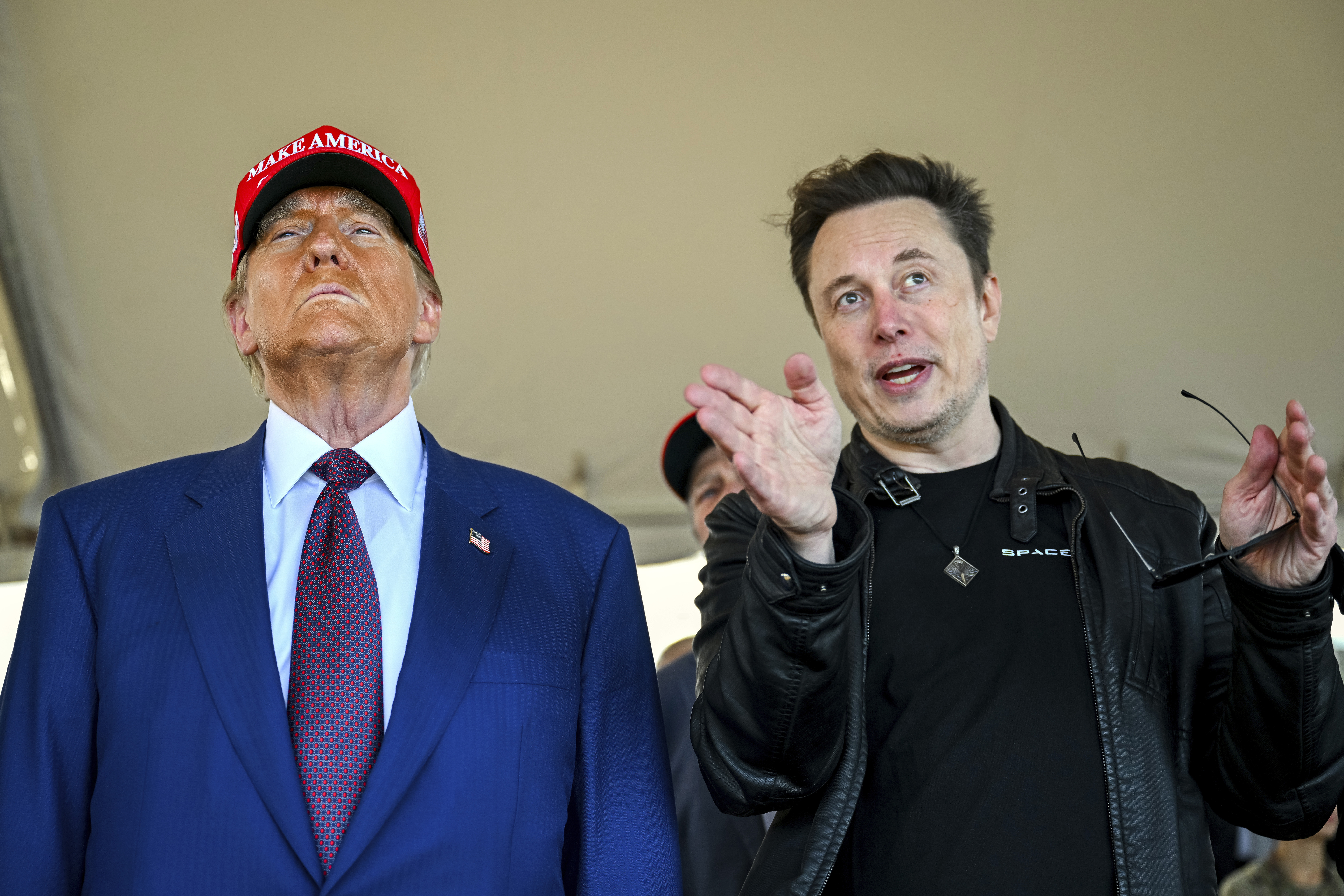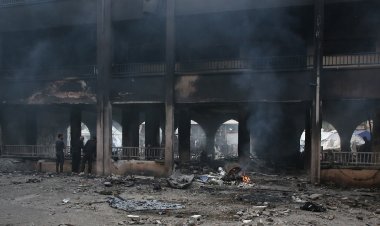US allies concern themselves with the shifting dynamics in Trump's inner circle
A significant global security forum this weekend was overshadowed by uncertainty surrounding the president-elect’s selections and strategies.

The complexities of this situation became evident at the Halifax International Security Forum, where foreign and defense ministers, lawmakers, and NATO representatives engaged in discussions regarding security challenges. Conversations were heavily focused on the positioning of individuals within Trump's inner circle and their potential influence over his decisions.
“Marco Rubio is secretary of State, but will Elon Musk have Trump’s ear on Ukraine? Will Mike Waltz or Donald Jr. or Tucker Carlson have the last word on NATO policy?” inquired a senior diplomat from a NATO member. “We’re consumed by these questions and frankly it’s already exhausting. But, hey, we can’t ignore it. It’s still important.”
This diplomat, along with others quoted, spoke anonymously to express their candid thoughts.
As attendees enjoyed a lobster dinner on Friday evening following a day of panels centered on democracy and policy expectations from the president-elect, Trump was announcing nominations in Florida at an astonishing pace — appointing individuals to seven significant positions in under 90 minutes, including Alex Wong as deputy national security adviser and Sebastian Gorka for a senior White House counterterrorism role.
However, uncertainty remains about the importance of these appointments.
“We're like Kremlinologists now,” stated Jim Townsend, a former senior Pentagon official under President Obama and now affiliated with the Center for a New American Security think tank.
Townsend made an analogy to Western officials who scrutinized information from the tightly controlled Soviet Union during the Cold War to gauge influence within the Kremlin based on seemingly innocuous details, such as who stood next to whom at military events.
On the subject of Trump, he remarked, “We’re reading into who's standing next to him at a UFC fight, who's playing golf with him and who's not anymore.” He added, laughing, “It feels ridiculous to be in the position of being a Kremlinologist when it's our own country we're trying to figure out.”
This discourse reveals growing anxiety regarding the potential impact of Trump’s return to power on U.S. allies, especially in the context of Russia’s ongoing invasion of Ukraine, unrest in the Middle East, and increasing cooperation among Western adversaries like Russia, China, and Iran. Officials are also strategizing on how to engage both Trump’s official team, including Cabinet members and the National Security Council, and informal advisers in his inner circle, which notably includes Elon Musk.
Many at the Halifax forum shared thoughts on Musk’s possible sway in foreign policy circles due to his global business interests, along with the reliance of several countries on his Starlink satellite technology for security. In a panel on Arctic security, Norway’s foreign minister, Espen Barth Eide, acknowledged, “Starlink is a part” of his country’s satellite network “as long as Elon Musk is happy, I guess.”
Despite these concerns, U.S. lawmakers and foreign ministers publicly maintained that the transatlantic alliance would remain robust during Trump’s presidency. The selection of Rubio as secretary of State and Waltz as national security adviser has been positively received among attendees.
Nevertheless, reservations linger about the influence of more isolationist figures surrounding Trump, including Vice President JD Vance and the controversial Sebastian Gorka, announced Friday to hold a senior National Security Council position.
“The informal team is the one that matters,” noted a former senior Trump administration official. “This may change once Trump gets settled into office in Washington but right now, Don Jr. is more important than Marco Rubio."
A European official, recalling the turnover in Trump's first term, speculated about Rubio's job security. “Eight months,” the official predicted — before a potential replacement.
Many European officials indicate they are now prepared to engage both factions within Trump’s world, provided they can discern who holds real power.
“We are used to dealing with governments of all sorts — emirs and sheikhs, autocracies and democracies — working to learn who are the right people, who have influence,” remarked a senior European diplomat. “So we will work to be prepared.”
Conversations among attendees included reactions to a post on X by Trump's eldest son, which criticized President Joe Biden for easing restrictions on Ukraine's use of American-made ATACMS missiles.
The two senators leading the U.S. delegation faced numerous inquiries about Trump's nominees during their public appearances. Senator James Risch, poised to chair the Senate Foreign Relations Committee, avoided questions regarding reports of Trump considering Richard Grenell for a special envoy role in the Ukraine-Russia conflict.
“This cake isn’t baked yet,” Risch told reporters, urging patience and declining to speculate about Grenell or how his prior statements on Ukraine might influence Trump's negotiation strategies for the ongoing conflict. He emphasized, “Everybody needs to be patient. We need to give the president space to go work on this.”
Risch also sidestepped another question regarding Trump’s nominee for director of national intelligence, Tulsi Gabbard, and her suitability given her previous alignment with authoritarian talking points.
Without confronting the issue directly, Risch stated, “I wouldn’t focus on one person,” and assured that the Senate receives briefings from across various governmental agencies.
During the same panel, Senator Jeanne Shaheen, the incoming ranking Democrat on the committee, was noncommittal about supporting former Fox News host Pete Hegseth as a Pentagon leader, indicating that “there will be a hearing” for all confirmations and “hopefully a background check” to explore allegations of sexual assault. Yet, she asserted her disapproval of Hegseth’s stance that women should not serve in combat roles, citing its potential repercussions for military recruitment.
“If women think they can’t participate fully in our military and take on combat roles, that’s going to have an impact on what women are willing to join our military,” she stated. “That’s going to have a significant impact on our readiness.”
Shaheen also tackled the issue of sexual assault, which she indicated remains unresolved within the U.S. military. “I don’t think having somebody who has a questionable record on that issue is a message to the women of the military that we want to send,” she emphasized. “Or a message to the women of the country that we want to send.”
Debra A Smith for TROIB News
Find more stories on Business, Economy and Finance in TROIB business












